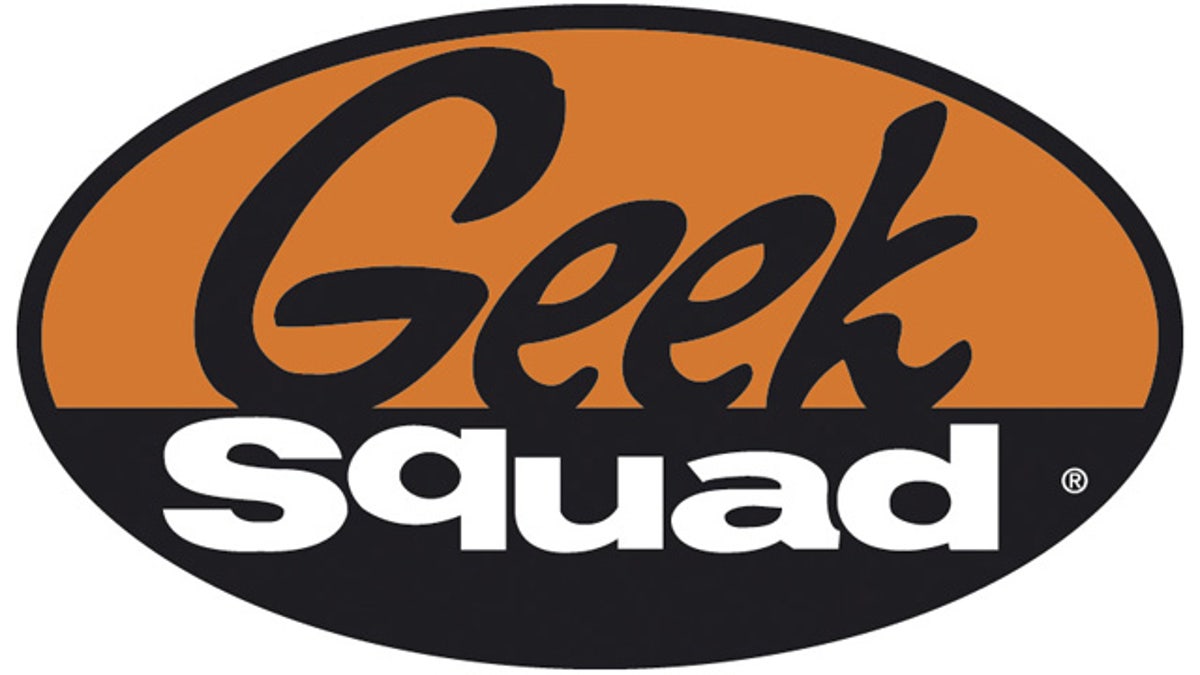
(The Geek Squad)
You've got tech questions, we've found the answers. We've asked the tech experts at the Geek Squad to help you make the most of your technology, answering your thorniest tech questions. So if you're wondering what to buy, how to plug it in, or how to fix it, the Geek Squad can help.
This week, Geek Squad Secret Weapon Agent Jeff Gernbacher answers YOUR questions.
"My daughter has a laptop that won't power on. Is there a simple fix, or should it be discarded? It was operating and then powered down and she could never power it back up." -- Bill
A computer that doesn’t power up can be a difficult thing to diagnose. It could be something simple and easy or it could be a serious issue. Here are a few simple steps you can try to see where you stand.
1. Just to cover the obvious, try powering it off by taking the battery out and running off of AC power. For desktops, make sure that the power cord isn't loose and that the outlet or power strip is functional.
2. Try draining power from your motherboard. On your laptop, unplug the AC adapter, take out the battery, and then hold down the power button for 30 seconds. This will drain all power from the system. Then reconnect everything and try again.
3. Try to boot it. Do you see any lights or hear any fans? Do you hear any beeps? A single beep usually means the computer has passed the basic power-on self-test, or POST. If you don’t see or hear anything, you may be in a bit of trouble. If you see lights on the power supply but the fans are not spinning we may have other failing components.
4. If your computer sounds like it is running but does not display anything, try to reconnect your video cables -- or try a different monitor.
That's only some of the options, of course. A computer that won't boot is difficult to diagnose, and it may be time to seek some professional help. Professional repair services, such as the Geek Squad, have special tools and equipment designed to diagnose what's wrong.
"My laptop used to be very fast: When I would click on something it would happen instantly. But now it takes time for stuff to load. It has 1,024 MB of system memory. What's wrong?" -- Cheryl
Remember when you first got that PC, how amazingly fast it was? What happened? There are many different possibilities -- and most of the time it will be a combination of these things.
Memory! When your computer was new, 1,024 MB (about 1 gigabyte) was probably perfect. But computing power has been shooting up, and the other parts of the PC have to keep up as well. Many new computers today will come with at least 4 gigabytes of memory -- four times as much as you currently have.
One easy way to speed things up would be to find out how many sticks of memory your computer can handle and what kind it uses. If you can throw in another stick or two, you'll greatly increase your performance.
Another culprit: having way too much stuff running at one time in your computer. Many programs will set themselves to start automatically every time you boot up your PC. It's easy enough to fix: Press and hold the “Windows” button and then press “R” to bring up a run prompt. Type “msconfig.” Click on the “Startup” tab, un-check the boxes next to non-essential programs.
But be careful! Un-checking the wrong thing can make a slow computer even more painful to deal with.
Another cause of a slow PC: the remnants of old programs left behind after being uninstalled. Depending on how adventurous you feel there are two ways you can attack this.
Find and run removal tools for your various old programs, such as Symantec’s NRT, or Norton Removal Tool. This is basically a way to get rid of the sand that was swept underneath the rug.
If your computer is really bogged down, and you have some time, you can back-up all of your data (which hopefully it already is) and reinstall your operating system. This gives you a nice clean slate to work with again.
The most painful cause of a slow computer is spyware or malware -- infections that are sometimes just annoying and other times downright scary. The best thing again to fight these are a preemptive approach through a good anti-malware and spy-ware software that has up to date definitions and some good old common sense. I know that I'm not related to someone in the royal family of Nigeria so I choose not to click those emails. But that's a topic for another discussion.
Got a question? E-mail us at AsktheGeeks@foxnews.com and we'll relay it to the Geek Squad. Next week, the Squad will answer the most interesting or most frequently asked questions.








































